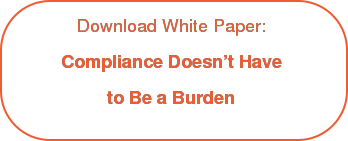 By Tom Stover, SVP Solutions Development
By Tom Stover, SVP Solutions Development
In a recent white paper we published, our compliance experts provided a rationale for engaging a third party vendor that specializes in insurance claims management to help servicers overcome the compliance risks our industry faces today. We covered claims for pre-foreclosure and REO property hazard insurance, flood insurance, auto insurance and more. That paper is available now on our website. We welcome you to download it to find out more about why outsourcing insurance claims management can mitigate your compliance risk.
We are very happy to report that many executives from around our industry have already downloaded the paper and we have received good reviews of the material. But we also received a few excellent questions and we’d like to address some of them in this post.
Q: Does your company maintain a formal insurance compliance monitoring and testing program with respect to legislation and regulations? If so, please provide a description of the program, including the insurance regulations that are monitored and tested, monitoring and testing frequency and scope, the group or individuals responsible for testing and issue reporting and resolution processes.
A: Yes. Excellent question! Any company working in this space should be able to provide to you, upon request, a copy of their formal policy for insurance compliance monitoring and testing, not only for regulatory compliance but also for quality assurance for both their processes and their personnel. We have a formal policy in place and we make it available to prospects who request it.
Q: Does your company have a compliance awareness training program to address applicable regulations?
A: Yes. Your vendor should have a program in place to ensure all employees are aware of their responsibility in maintaining compliance with applicable laws and regulations. This program usually involves training prior to starting an employee’s job function and then annually thereafter. Additional focus should be placed on employees that require licenses to maintain compliance with continuing education responsibilities.
Q: Describe the policies, procedures and/or audits that exist to ensure your company remains in compliance with local, state and federal insurance and financial regulations.
A: In addition to internal policies/programs described above; it is beneficial to leverage technology to help ensure compliance wherever you can. At DIMONT, our proprietary hazard claims processing system is used to track the licenses for each of our public adjusters and then insures that those adjusters only work on claims in states in which they have licenses.
Lastly, auditing company processes and procedures is vitally important and best performed by third parties that specialize in this work. At DIMONT, we recently completed our Statement on Standards for Attestation Engagements (SSAE 16/SOC 1 Type II certification) for all controls placed in operation and tests of operating effectiveness for hazard insurance claims services systems. SSAE 16 is an attestation standard issued by the American Institute of Certified Public Accountants (AICPA) that reports on controls supporting the services provided to clients. The controls addressed are those that an organization implements to prevent, detect and/or correct errors or omissions in the information it provides to its clients. In many industries, it is the gold standard.
At DIMONT, we are proud to have received consecutive SSAE 16 certifications for more than seven years. The 2016 examination determined that DIMONT continues to meet or exceed SSAE 16 control objectives such as control environment, risk assessment, monitoring, computer operations, data center operations, access/security, systems development and systems maintenance, as well as the entire insurance claims process.
These are the kinds of questions that every servicer should ask whenever they hire third parties to perform work that has a strong compliance component. When it comes to insurance claims processing, which is subject to many regulations handed down by a number of jurisdictions, it becomes even more important. There is no substitute for good due diligence.
For more information, visit our website and download our recent white paper.
